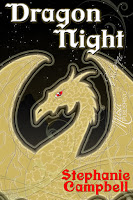Writing is both creative and a business. Every writer knows this – or should know it. Marketing is the key to get your books in the hands of potential readers. How you do this depends on what suits you best. The following has been modified to talk about authors, but it applies to any business. Most of this information comes from a wonderful website called Copyblogger, and I urge any writer (beginner or bestseller) to check out the sage advice and tools this site has to offer.
There really are two kinds of author entrepreneurs, with two styles of working. Neither one is good or bad. Either one can be successful, and either one can go down in flames. Choose the working style that match your personality and everything in your writing business will work better. But pick the wrong style, one that doesn’t match who you are, and your writing business is going to make you miserable.
The two types of author entrepreneurs are sprinters and marathoners. And you’ve got to figure out which kind you are.
A lot of the traditional author types are sprinters. They like to work in focused bursts. They might kill themselves pulling all-nighters for 4 or 6 weeks, create a process that works and deploy it.
Dean Wesley Smith is an excellent example of this kind of author. Smith works 18 hours a day so he can make money while he sleeps. Sprinting is a lot of work, because your systems have to be able to work without you — to make money while you sleep.
Marathoners, of course, take a more slow and steady pace. They show up every day. They tend to be excellent at producing quality writing in small, bite-sized pieces. They often fall prey to doing everything themselves, because they can. Bloggers are the consummate marathoners. In fact, bloggers often just keep running year after year and forget there’s such thing as a finish line. Lots of social media techniques are lousy for sprinters. Unless you’re willing to check in a couple of times a day, twitter isn’t the tool for you to find and connect with customers. Neither is Facebook. Or LinkedIn, or MySpace, or a forum. They all need the steady presence that belongs to the marathoner.
So which one are you? Most of us aren’t pure marathoners
or pure sprinters. We’re hybrids.




